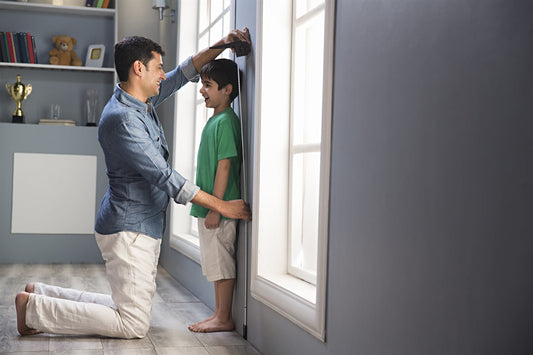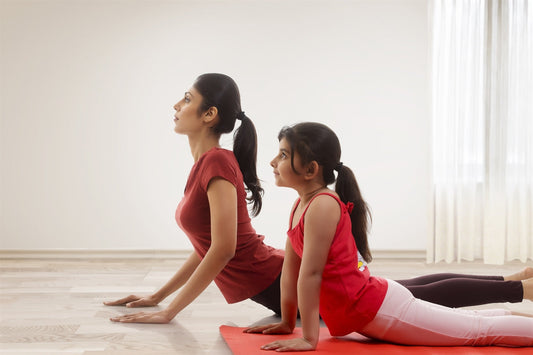
Building Your Child's Social Skills With Fun Games
Studies suggest that your child will be better prepared for kindergarten if he/she has already acquired certain social-emotional skills i, ii. Given that play therapy helps children express themselves better, you can spend time with your child playing games or host a game-themed party and invite other toddlers as well. Group play therapy is also known to enhance self-awareness, self-regulation, social communication, empathy, and adaptability in childreniii.

If you want your child to gain these social skills and learn to express themselves more effectively, here are some games you can consider playing with them during their playtime.
1. Taking Turns
Inculcate reciprocation in your child by taking turns pressing button(s) on a toy, passing the ball or similar object, or handing blocks to each other as both of you stack them up. This activity encourages acts of kindness in your child. Playing in a group with other children or older family members helps your toddler overcome shyness and engage with new people.
2. The Name Game
When amongst a group of toddlers, sit them all down in a circle and hand one of them a ball. Ask them to call out a child’s name and roll the ball to him/her. Continue with the game in a rhythm and then breaking the sequence to form a new one to keep the children engaged. This will teach your kid the importance of calling for someone’s attention before speaking, as social etiquette.
3. Emotion Charades
On a piece of paper write an emotion or feeling such as happy, sad, anger, sympathy, pain, etc., fold and place it in a bowl. Pass the bowl asking a child to pull a paper and act out the emotion or feeling on the paper for the other children to guess. Help the toddlers in their attempts. This game will help your child with reading social cues and empathy as well as learning to express themselves openly and clearly.
4. My Friend Is In The Middle
Make the toddlers sit in a circle and choose one child to be in the middle. Encourage the child to dance out the moves (hop, skip, jump, etc) as you sing, using their name. Repeat until all of the children have had a turn. This game works towards developing your toddler’s confidence and ability to follow instructions.
5. Staring Game
Help your toddler be comfortable making and maintaining eye contact when talking or listening to someone. You can have a staring contest where you challenge your child to see who blinks first. Or when playing in the park you can ask your child to stare at you while approaching you when swinging back and forth or sliding down. The idea is to train your child to look in the right direction with confidence when paying attention to a speaker or listener.
6. Matching Game
You make a set of cue cards of pictures and another set of the object’s name cards. Then ask your child to match the cue card with the correct name card. There can be several variations to these – have both the sets face-down and have the child pick from each set and match, or you can have both sets face-up or you can have one set face-up and the other face-down, or you can arrange the sets in wrong pairs and ask your child to correct. This helps your child learn patience and follow through with an activity to its completion.
7. Role Playing
Arrange two chairs and sit on one with your toddler on the other. Hand him/her a paper plate to use as a steering wheel and make noises heard on the road while driving. Engage the child in this pretend game with a story – inviting the stuffed toys, dolls, and action figures to join in the drive. Or you can create a cave by throwing a blanket over chairs or boxes and go camping with your child pretending to be stuck while it rains outside. This helps the child being resourceful, creatively, and imaginatively, as he/she learns to use objects as symbols for something.
8. Storytelling
Announce storytime and use hand puppets made from socks or DIY crafts to narrate a story and ask your child to join in. You can also just use your and your toddler’s bare hands for a spur of moment storytelling. This encourages toddlers to talk, express themselves, and play with others.
Games can teach your child about cooperation, making friends, and negotiating conflicts towards being socialiv. The development of social skills is also dependent on the development of the brain and nutrition plays a major role in the development of your toddler’s brain by providing the necessary building blocks such as DHA. But DHA is quite scarce in food sources and thus health food drinks such as Junior Horlicks# containing DHA, Choline, 50% high Protein* and 23 vital nutrients can help bridge the nutritional gap if any.


